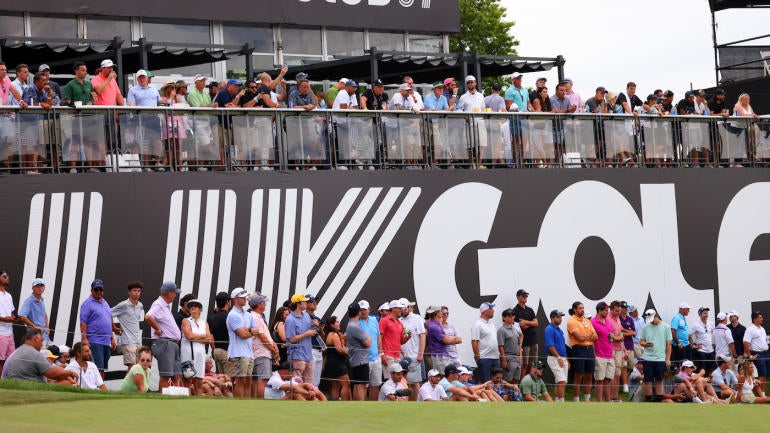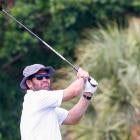
LIV Golf has officially joined the legal fight against the PGA Tour. An amended lawsuit was filed Friday in the U.S. District Court in Northern California in which Jason Kokrak and Abraham Ancer dropped out as plaintiffs but LIV Golf Inc. was added to the list of seven golfers still filing against the PGA Tour.
That list of golfers included the three -- Matt Jones, Talor Gooch and Hudson Swafford -- who recently lost a temporary restraining order hearing that would have allowed them to play in the FedEx Cup Playoffs, which started two weeks ago at the St. Jude Invitational. The four others include Phil Mickelson, Bryson DeChambeau, Peter Uihlein and Ian Poulter. Pat Perez and Carlos Ortiz had previously dropped off as plaintiffs, bringing the original number of 11 down to seven plus now the inclusion of LIV Golf as an organization.
LIV Golf jumping into the fray makes some sense. The organization and its CEO, Greg Norman. have always pledged to help defend golfers who want freedom as it relates to where they play golf.
"It's not a threat; we anticipated it," said Norman earlier this year after the PGA Tour refused to grant releases to players to play in the first few LIV Golf events. "All the players I've told: We've got your back. We'll defend, we'll reimburse, and we'll represent -- simple as that."
The PGA Tour normally grants up to three releases per year to players to play on other tours but did not do so for even one of the LIV Golf events. In its amended complaint, LIV Golf joins Mickelson and the six other players still suing the PGA Tour on the grounds of antitrust and monopolistic power, according to the AP.
In the amended complaint, LIV Golf argues that without a favorable ruling, its "ability to maintain a meaningful competitive presence in the markets will be destroyed." LIV Golf alleges the PGA Tour's restraints forced it to raise its costs to sign players and kept it from recruiting others who fear the threat of being punished. It also claims the tour forced LIV Golf to delay its launch for 2022 and have a smaller schedule in its first year.
The PGA Tour's restraints are in place because it needs to know what product it is selling to both television networks and sponsors, which will undoubtedly come into play as this case unfolds. According to the PGA Tour handbook, releases can be denied ad hoc as the commissioner (in this case, Jay Monahan) sees fit.
Notwithstanding the above, the Commissioner may deny any particular release request if he determines that such a release would cause PGA Tour to be in violation of a con- tractual commitment to a tournament sponsor, or would otherwise significantly and unreasonably harm PGA Tour and such sponsors. Also, the Commissioner shall be entitled, but not obligated, to grant additional releases when he determines that to do so would not unreasonably harm PGA Tour or the sponsor involved.
There are many complicating factors at work here. The PGA Tour is arguing that it is simply attempting to preserve its product, and LIV Golf will argue that it is abusing monopolistic power to prevent entry into the marketplace by competitors. The problem with some of that argument, as was pointed out by Judge Beth L. Freeman in the TRO hearing a few weeks ago, is that LIV Golf actually has entered the market, swiping major winners like Brooks Koepka, Dustin Johnson, Mickelson and DeChambeau.
There are many ways this could play out in the subsequent weeks and months. All of them will be interesting. The trial is not set in this case until the beginning of 2024, but there will continue to be movement (and likely fireworks) as the battle for the future of golf continues with the PGA Tour trying to fend off not just these seven players and their complaints but also a league backed by a nearly-limitless trove of resources.

















